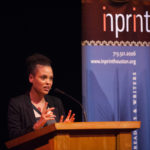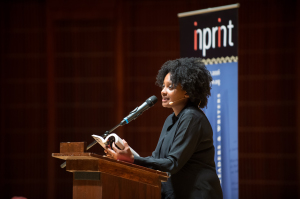Meet today’s literary stars, and tomorrow’s
October 13, 2017, by Rich Levy

We’re thrilled to report that Pulitzer Prize-winning novelist Viet Thanh Nguyen—who will be appearing in the Inprint Margarett Root Brown Reading Series on Monday, November 13, 7:30 pm, at Rice University’s Stude Concert Hall–-was named one of this year’s 24 recipients of MacArthur Foundation “genius” fellowships.
We are happy for him and for all of you, who will have the privilege of hearing him speak on his first appearance in the Series. Don’t miss it—he will be in conversation with Houston native William Broyles, founding editor of Texas Monthly, Academy-Award nominated screenwriter, and author of Brothers in Arms, an account of his return to Vietnam to meet the men and women he fought against during the war. Inprint will join with Houston Public Media to live-stream this reading.
 Another of the 2017 MacArthur “genius” fellowship recipients is novelist Jesmyn Ward, who appeared in the Inprint Margarett Root Brown Reading Series in March 2013. You can watch a video here of her reading from her National Book Award-winning novel Salvage the Bones and her conversation with fellow novelists Amber Dermont and Robert Boswell, on the Inprint website in our Archive of Readings. Continue reading
Another of the 2017 MacArthur “genius” fellowship recipients is novelist Jesmyn Ward, who appeared in the Inprint Margarett Root Brown Reading Series in March 2013. You can watch a video here of her reading from her National Book Award-winning novel Salvage the Bones and her conversation with fellow novelists Amber Dermont and Robert Boswell, on the Inprint website in our Archive of Readings. Continue reading


